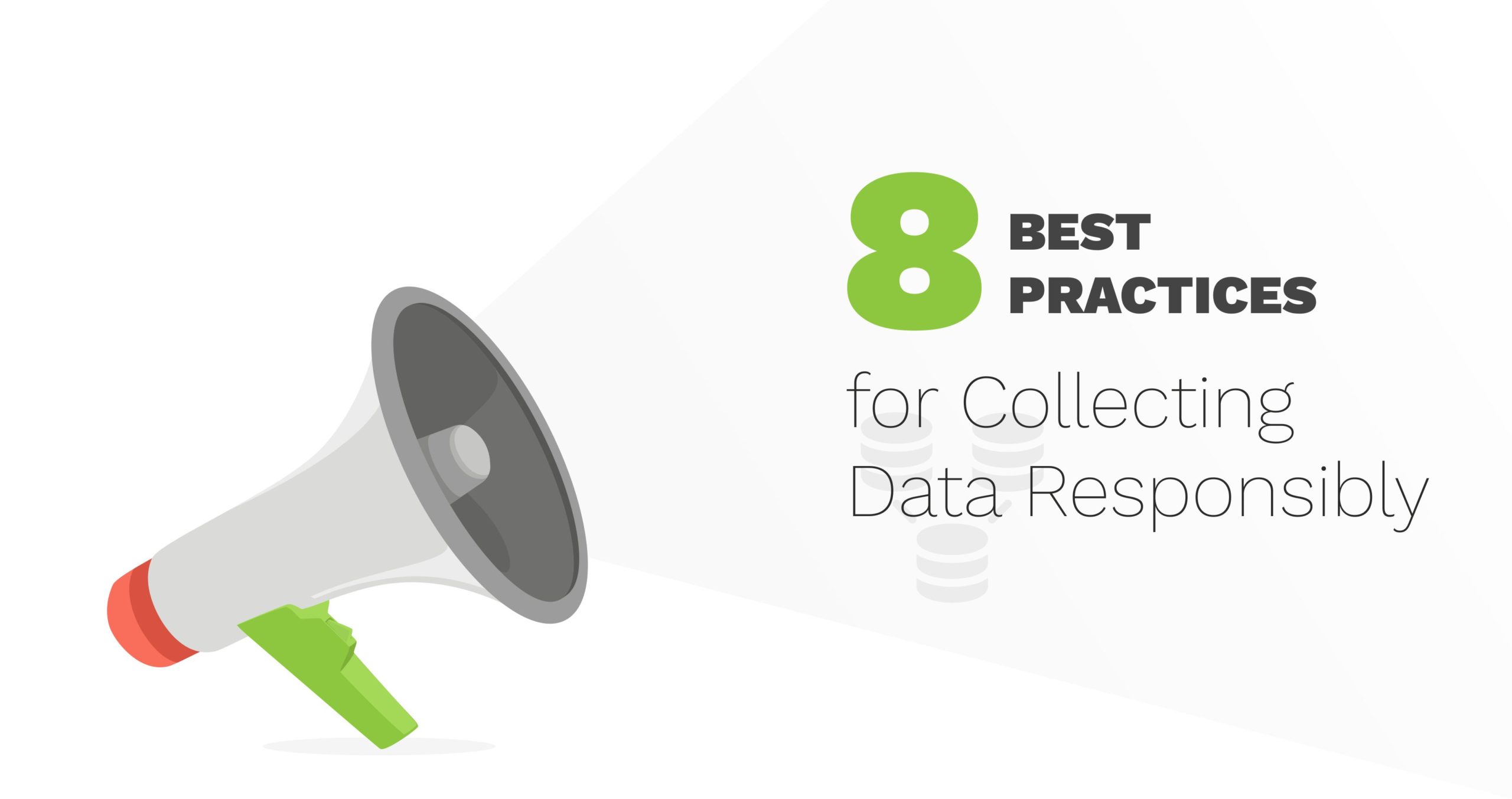Your physician collects personal information about you on a regular basis, from the time you make your first appointment (and fill out all those forms) to each visit you have in their office. Collecting data as a healthcare company is easy, because people know the answers to those questions are crucial to delivering quality care. In many cases, they may already assume their healthcare provider is collecting data responsibly.
Collecting data as a retailer is a bit trickier. Consumers expect personalized service but are weary about giving away information. Why? Well, for starters, giving away a lot of personal data gives a lot of power to the company collecting it. Consumers may ask themselves, “How are you going to use my personal data against me? Will you sell it and then I have to deal with being on a hundred email lists? Will you keep my personal information safe and secure?” Consumers want to feel like they control who has their data. For these reasons, collecting data involves a lot of responsibility.
It’s also something that most consumers don’t agree with. In fact, according to a University of Pennsylvania study, The Tradeoff Fallacy, consumers are “resigned to give away their information” because they feel powerless to stop the collection of it. The study revealed that consumers are not all right with losing control over their information, and large percentages of them disagree with trading information or shopping habits for discounts or other incentives. This suggests that consumer trust is important when it comes to collecting data about consumers.
But how do you gain that trust, collect the data you need, and do it responsibly? These 8 best practices for collecting data responsibly will guide you in how to handle their data – and hopefully gain consumers’ trust at the same time.
Be transparent
People want to know how and why you are collecting their data. So tell them. Allow users to opt in or out of data collection, and tell them exactly how the information will be used. Being transparent builds trust. Hiding the data you’re collecting can lead to a public relations nightmare when people are outraged that they were tricked into giving up private information (like search history, online habits, etc.).
Speak in plain language
“Legalese,” highly technical language, and small print make people feel uncomfortable and intimidated by what you’re doing. Speaking in plain language, however, makes your data policies easy to understand, which in turn makes data collection easier. Customers and users then become more comfortable with your brand.
Make the data exchange mutually beneficial
The use of your customer’s information or shopping habits is a huge benefit to your company. But responsible data collection means making use of that data mutually beneficial. According to the University of Pennsylvania study, “91% disagree (77% of them strongly) that “If companies give me a discount, it is a fair exchange for them to collect information about me without my knowing.”
Don’t just throw discounts at people and call it a day. Create real value and spell out the benefits. Why do you want them to share their location? Is it to offer up more personalized services? Spell it out.
Safeguard your data
Data breaches have serious negative effects on your business, your image, and the safety of your consumers. Data breaches lead to people’s identities being stolen, credits cards being opened in their name without them knowing it, and even fraudulent tax returns being filed. If you’re going to collect all this personal data, it’s your responsibility to safeguard the data you collect.
Safeguarding your data means:
- Back up your data in case your systems crash
- Ensure there is no personally identifiable information within your database (make sure it’s all encrypted or use a system so that the information is represented by a number or code instead of the actual personal info)
- Have malware, antivirus software, and firewalls that protect from data breaches (and make sure it’s all up to date)
- Have an emergency plan in the event of a data breach
Know the regulations
Know the rules and regulations surrounding data collection. This includes regulations enacted by U.S. federal, state, and local governments, as well as international regulatory bodies.
Know your boundaries
Be cognizant of how frequently you market to consumers. Just because you have their email or phone number does not mean you are free to spam away. Make your marketing personalized, relevant, and valuable. You should also ensure that you are not crossing boundaries in how you use customer data. Use the data you collect only as promised and retain it only as long as needed.
Set data governance policies and guidelines
Data governance refers to policies and guidelines that define acceptable uses of data, authorized access to data, and management of the data. These are internal policies that help govern the entire data management lifecycle. Make sure yours are up to date and make sense for your company and what you use your data for.
Ensure data quality
Your data sets need to be checked and cross referenced for data quality. Are the Twitter handles, IP addresses, and mobile numbers of each customer matched up correctly? Have metadata definitions been applied to the proper data sets? Appoint a data steward to be in charge of data quality to ensure the accuracy of your data.
According to the Responsible Data Forum, collecting data responsibly is “The duty to ensure people’s rights to consent, privacy, security and ownership around the information processes of collection, analysis, storage, presentation and reuse of data, while respecting the values of transparency and openness.” Use these 8 best practices for collecting data responsibly to make sure your data collection practices are on point.
For more on how you can collect and use data responsibly, or if you have specific questions about whether or not your current data collection practices are up to snuff, reach out to us at RTS Labs. It never hurts just to have the conversation.






